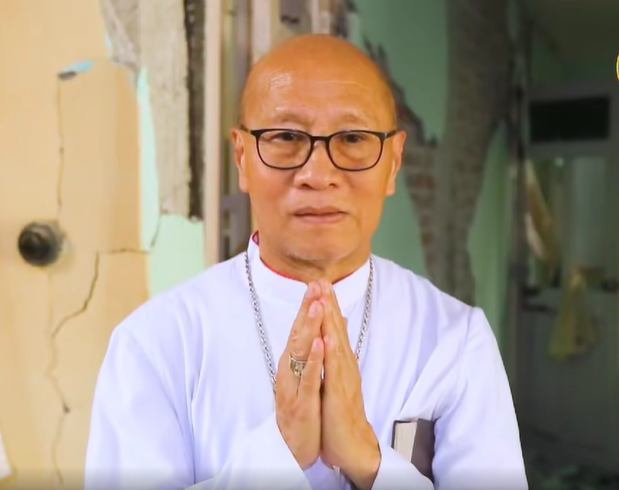Bangladeshi forces and ethnic militias clash following Cyclone Mocha
Last week, two soldiers were wounded and two more killed in an attack claimed by the Kuki National Army, which is active just north of the cyclone-hit area. In the meantime, the United Nations reports that at least 800,000 people need immediate assistance.
Sittwe (AsiaNews) – A clearer picture is emerging about the level of devastation inflicted by Cyclone Mocha a week ago when it slammed into Rakhine State (north-western Myanmar).
The cyclone also affected neighbouring Bangladesh, which hosts hundreds of thousands of Rohingya refugees, in a region affected by armed clashes between Bangladeshi forces and the Kuki National Army (KNA), an insurgent group active in north-eastern India and north-western Myanmar seeking autonomy.
Last Tuesday, two Bangladeshi soldiers were killed, and two officers wounded in Bandarban, a district north of the area affected by Cyclone Mocha. The border that separates Rakhine from the Indian state of Mizoram is porous.
That day, KNA fighters set off a bomb in Ruma subdistrict (upazila) and shot at an army patrol, the authorities reported. The next day, two civilians working for the authorities were also shot.
In early April, several bodies were recovered and later identified as Kuki fighters. On 12 March, a Bangladeshi warrant officer was killed in an ambush.
According to the Bangladeshi military, Kuki separatists are creating an "anarchic environment" in the border forests. KNA spokesman Captain Fleming told The Irrawaddy news site that his group had no alternative.
“We did not want an armed struggle. We approached the authorities to address our problems. We submitted our proposals. [But] None paid heed to us so we took up arms and demanded our autonomy,” he explained.
“We never wanted separation rather our land rights and an end to discrimination,” he added. “We are marginalized and facing discrimination in every area, especially in getting jobs.”
In 1997, a decades-long insurgency by indigenous peoples against the Bangladeshi government ended with the signing of the Chittagong Hills Peace Accords.
According to several observers, the living conditions of some groups, like the Kuki, have not improved since then.
Meanwhile, the United Nations reports that at least 800,000 people need humanitarian assistance following the passage of Cyclone Mocha.
Anthea Webb, World Food Programme's deputy regional director for Asia and the Pacific noted that “houses [were] flattened, roads cut off by uprooted trees, hospitals and schools destroyed, and telecommunications and power lines severely disrupted.”
Some aid has already been distributed in Rakhine, as well as in Magwe, a region in Chin State, home to thousands of people internally displaced by Myanmar’s civil war in the last two years.
At the same time, “nearly half a million Bangladeshis and thousands of Rohingya refugees have lost their homes and assets,” she added.
Funding shortages have forced the United Nations to cut food vouchers for Rohingya refugees in Cox's Bazar (Bangladesh), and more cuts can be expected “in June, unless funding is secured," Webb explained.
“The cyclone,” she added, “has made a bad situation much worse for millions of people already struggling to cope in extremely precarious conditions.”
19/05/2023 18:59
17/07/2019 14:42
16/05/2023 12:57







.png)










